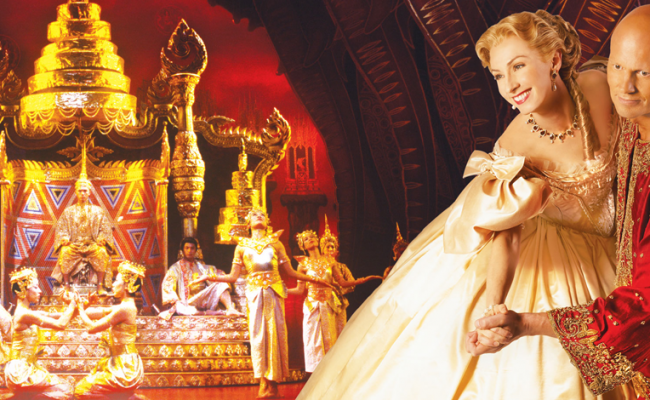It’s 2014 and Australia is gearing up for a tour of Rodgers and Hammerstein’s King and I; advertisements line the streets. If you pick up the papers the reviewers are urging us to put away our political correctness and go see the fantastic show.
Never mind that it is a musical about a white-woman teaching the Orientals how to be ‘modern’. That a dumb and confused backwards Asian monarch has to learn European habits to prove himself to the British. That if you’re in Sydney or Brisbane you will be treated to a white-man putting on an accent of Asian broken English for two and half hours. What more could one ask for?
The King and I is out-dated and racist, there are no two ways about. The content is highly offensive and carries strong colonialist overtures. The fact that the show is still put on mainstream theatre and the tickets still sell makes a laughing stock of any claims of post-racist Australia.
Rodgers and Hammerstein’s play was a smash hit in the 50s. Based off a 1944 novel by Margaret Landon, it went on to win five Tony awards and be remade into a popular 1956 film.
The plot is centred on a British schoolteacher, played by Lisa McCune, who is employed by the King of Siam to teach his children about the western world. Later she teaches the king how to act European so he can convince visiting British diplomats that his empire is civilised and doesn’t need to be colonised.
The producers of the show, Opera Australia and John Frost have bet big on the show, sinking in a $6 million dollar budget. Strangely, director Christopher Renshaw chose to employ an American actor of Chinese descent (Jason Scott Lee) for the Melbourne season but retained New Zealander Teddy Tahu Rhodes for the Sydney and Brisbane seasons – as if the show wasn’t racist enough without a white actor to play the role of the King.
Perhaps equally disturbing is our media institutions willingness to get behind the project. Nowhere in the mainstream media is there any critique of the appropriateness of the show, while Fairfax gave it four-stars and urged musical theatre lovers to go along.
Both (white) reviewers briefly acknowledge that the show is racist and then go straight on to praising the work.
Natalie Bochenski writes, ‘Hearing Rhodes take on the King of Siam’s broken English is initially jarring, like listening to everyone’s least favourite uncle do his best joke about Chinese drivers at a family gathering.’
Cameron Woodhead says the production
looks decidedly un-PC in what has, after all, been dubbed ‘the Asian century’. But it’s also one the boomers grew up with and their children probably saw the film.
He adds: ‘It’s still enchanting – just don’t mention Edward Said.’
While it is disappointing to see relatively (emphasis) progressive papers get so firmly behind such racist work, Fairfax hasn’t had the best track record on racism as of late.
After giving loads of publicity and rave reviews to Chris Lilley’s new brown-face Jonah From Tonga, last week Fairfax journalist Mark Sawyer wrote an unrelated-to-anything tirade about Australians not really being racist these days. The article ‘How racist are you?’ basically argues that, apart from the few Australians who yell at people of colour on the street, no-one is really racist these days.
It may pay to look at the bigger picture. After all, aren’t we living in an era when evil is an outmoded concept, when there are no bad people, only bad acts? On that basis it seems counter-intuitive and frankly crazy to label people racist on the basis on one or two remarks.
He goes on to argue that everyone just takes things too seriously and, though some people make slips of the tongue, they are never really racist. He even argues that Los Angeles Clippers owner Donald Sterling was hard-done by the media attacks upon him.
How does Sawyer understand racism so well that Fairfax pay him to write articles on the issue?
I’m sorry but I have walked past it plenty. I walked past it when a man in Spain told me he was ‘working like a black’, when an old girlfriend asked whether I still ‘smoke like a Turk’ and when a fella in country NSW offered me his ultimate accolade: ‘’Thanks mate, you’re a white man.’
Perhaps the reason Woodhead suggested not to mention Edward Said in conjunction with the King and I, is because to start considering the racial effects media have on our society would lead to some damning conclusions.
In Said’s acclaimed book Orientalism, he charts how literature and art written by Europeans has shaped European thinking towards Asians from the crusades to the present day. Said draws clear connections between the strains of thought expressed in Orientalist art and the pretext of colonisation – connections that can be seen at the Princess Theatre in Melbourne this week, tickets selling fast.






